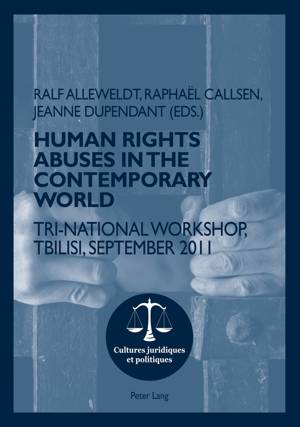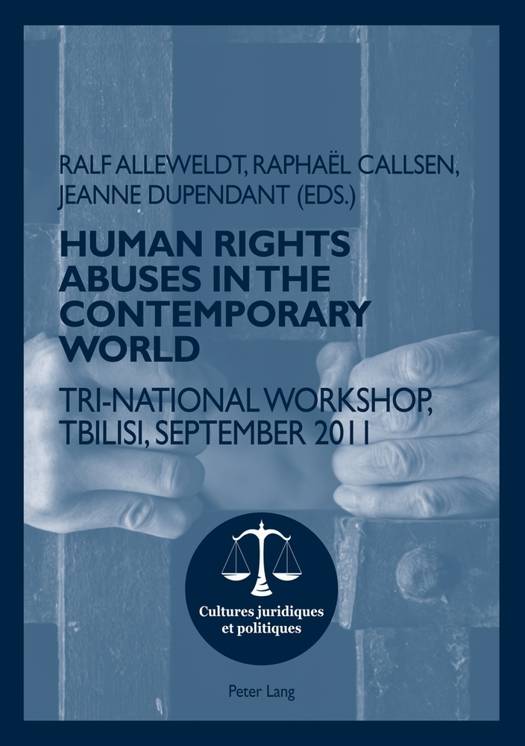
- Afhalen na 1 uur in een winkel met voorraad
- Gratis thuislevering in België vanaf € 30
- Ruim aanbod met 7 miljoen producten
- Afhalen na 1 uur in een winkel met voorraad
- Gratis thuislevering in België vanaf € 30
- Ruim aanbod met 7 miljoen producten
Zoeken
Human Rights Abuses in the Contemporary World
Tri-National Workshop, Tbilisi, September 2011
€ 71,45
+ 142 punten
Omschrijving
At the 60th Anniversary of the Universal Declaration of Human Rights, the General Assembly of the United Nations States deplored that «in no country or territory can it be claimed that all human rights have been fully realized at all times for all. Human beings continue to suffer from the neglect and violation of their human rights and fundamental freedoms». Especially in Georgia, human rights abuses are a painful part of recent history. The tri-national workshop organized by the Caucasus School of Law (Georgia) and the Universities of Paris Ouest Nanterre La Défense (France) and Potsdam (Germany) opened new perspectives on how to effectively prevent such violations. Are preventive mechanisms necessary? Is «soft law» more effective than «hard law»? Is there a contradiction between the right of people to selfdetermination and territorial integrity? Who is bound by human rights in armed conflicts? Do human rights play a role in criminal law? Which mechanisms allow for an application of human rights in Private International Law? Are transnational corporations liable for human rights violations? These and other issues are explored in twelve selected papers written in English, French and German.
Specificaties
Betrokkenen
- Uitgeverij:
Inhoud
- Aantal bladzijden:
- 211
- Taal:
- Engels
- Reeks:
- Reeksnummer:
- nr. 3
Eigenschappen
- Productcode (EAN):
- 9783034311472
- Verschijningsdatum:
- 14/09/2012
- Uitvoering:
- Paperback
- Formaat:
- Trade paperback (VS)
- Afmetingen:
- 150 mm x 211 mm
- Gewicht:
- 272 g

Alleen bij Standaard Boekhandel
+ 142 punten op je klantenkaart van Standaard Boekhandel
Beoordelingen
We publiceren alleen reviews die voldoen aan de voorwaarden voor reviews. Bekijk onze voorwaarden voor reviews.










